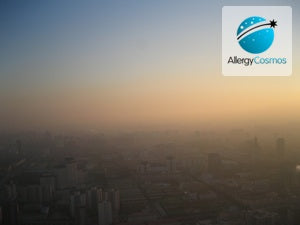After a number of scandals, it looks as if the government in Beijing has finally woken up to the fact that the city's air pollution is posing a serious problem to those living there, including those relocating from abroad for business reasons.
State media outlets have said that Beijing will act to reduce air pollution levels by 15% by 2015 and by as much as 30% by 2020. They will achieve this by phasing out the older, more polluting cars, closing down or relocating dirty factories, like cement works which emit a lot of dust, and they will also plant many new forests.
Citizens of Beijing have been calling for this type of action for some time now. Beijing's pollution is the very visible kind – it is so bad that the airport had to be closed owing to lack of visibility. Cancelled flights are, of course, bad for business. But worse still is the impact of breathing in air pollution on your lungs. The Beijing Health Bureau admits that lung cancer rates have gone up 60% in the last decade, even though smoking rates have not increased. In a recent article, Dr Richard Saint Cyr, a family doctor working in Beijing, noted that spending a month in the city's smog is the equivalent of smoking five cigarettes. Put like that, maybe the problem doesn't sound so bad – but recent air quality data from Beijing does tell a very alarming story.
People are angry because, till now, it looks as if officials blamed visible air pollution and the airport closures on the weather. The United States Embassy set up a now-famous Twitter feed which relayed daily information on PM2.5s levels from a monitoring station on top of the Embassy building. This seemed to be broadcasting the truth about Beijing's pollution while its own government seemed to be in denial. Doubtless, the publicity has helped force the government to act and come up with these new anti-pollution measures. If you check the Twitter feed, you'll see that levels of PM2.5s are classified according to the Air Quality Index as 'unhealthy' or 'very unhealthy' on many consecutive days.
The term PM2.5 refers to particles with a diameter of 2.5 microns or less. Pollution levels in Beijing generally come out as 100 micrograms per cubic metre or more. The World Health Organization recommends upper limits of 10 (annual mean) and 25 (24-hour mean) for PM2.5 exposure. That's because being so small, they can penetrate deep into the lungs and even into the bloodstream where they can reach every part of your body. Health effects of PM2.5 exposure include increased respiratory problems, such as airway irritation, asthma attacks, chronic bronchitis and decreased lung function. Then there is an irregular heartbeat, premature death among those with heart or lung disease and non-fatal heart attacks. Plus, of course, there's that worrying rise in lung cancer rates in Beijing.
Beijing's location doesn't help. Being on a flat plain with mountains on three sides traps pollution from an unhealthy mix of heavy traffic and industrial activity. China's continued reliance on coal, combustion of which is a prime source of particulate pollution, doesn't help either. So it is good to know that the city's consumption of coal is to be reduced by more than half the current levels by 2020.
Of course, these measures will take time to reduce the Beijing air pollution. It will probably be many years before the benefits are felt. In the meantime, citizens need to do something to protect themselves from urban air pollution. Home air purifiers are becoming increasingly popular in this part of the world. They are often the only way to protect your health. Those fitted with a High-Efficiency Particulate Air (HEPA) filter such as IQAir’s air purifiers will trap PM2.5 and smaller pollution entering homes and offices from the outside environment. The key here is that the units are leakage free. The Swiss-made IQAir air purifiers offer a level of sophistication and filtration performance that far outperforms the often more 'gimmicky' air purifiers in the local Asian market.
http://airnow.gov/index.cfm?action=aqibasics.aqi




